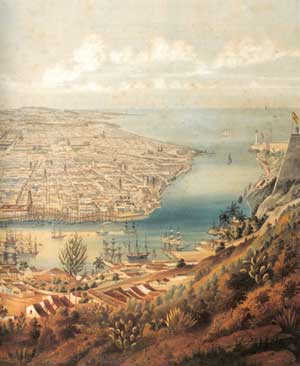2.3.5.6 The Havana Forum and its Mysteries; or, an Official of Causes, a novel attributed to Franchi Alfaro and published in 1846

This novel was published in Madrid, using the pseudonym “A Cuban Magistrate”, and is attributed to Antonio Franchi Alfaro, although this assertion has not been fully clarified, and there are few studies on the text, which is undoubtedly important for some literary values, and above all for delving into the study of its historical circumstances.
The novel explores the issue of legality in the colonial context, which at the same time allows it to delve into the moral foundations on which the system was built and thus launch a critical thrust at various “sick” areas of reality.
Throughout the work, a clear dichotomy emerges between Félix Aristo, a representative of honesty and generally the repository of an axiological content of absolutely positive traits, and Perico Rustete, who reflects the everlasting tendency to place money and personal well-being above ethical considerations, through subterfuges and tricks of various kinds. Both embody extreme attitudes midway between those found in the true lawyers and jurists of the time.
This contrasting conception of the characters, situated at the uncontaminated poles of good and evil, somewhat nullifies the intention of revealing the social reality of the time, which is nevertheless expressed in broad strokes, especially in terms of the class segregation of society, evident in the stories of men of power, even belonging to high ecclesiastical and governmental strata, involved in various criminal acts. The emergence of certain passages linked to slavery or prostitution reflects the greater poverty and subjugation of the lower classes.
The novel generally responds to the romantic worldview, this is most evident in the idealized regeneration of the characters who jump to the pole of good without plausible motivations, which does not cancel out a certain realism in the drawing of the social panorama, as well as in the physiognomic and sometimes ethological description, when the author does not incur in the Manichean bias.
According to Adis Barrio, “the transcendent meaning of the Forum… must be found in the disappointed and pessimistic aftertaste left by the certainty of a justice sold to the highest bidder. This idea becomes conscious, to the extent that legality is accepted as a mere matter of chance.” He quotes Franchi himself: “A sad spectacle is that of an honest man, struggling against fate and unable to overcome it.”
One possible interpretation points to an even sadder spectacle: that of a people oppressed by colonial injustice, yet not finally taking up arms to fight for freedom, since in all systems, injustices are somehow intertwined.








